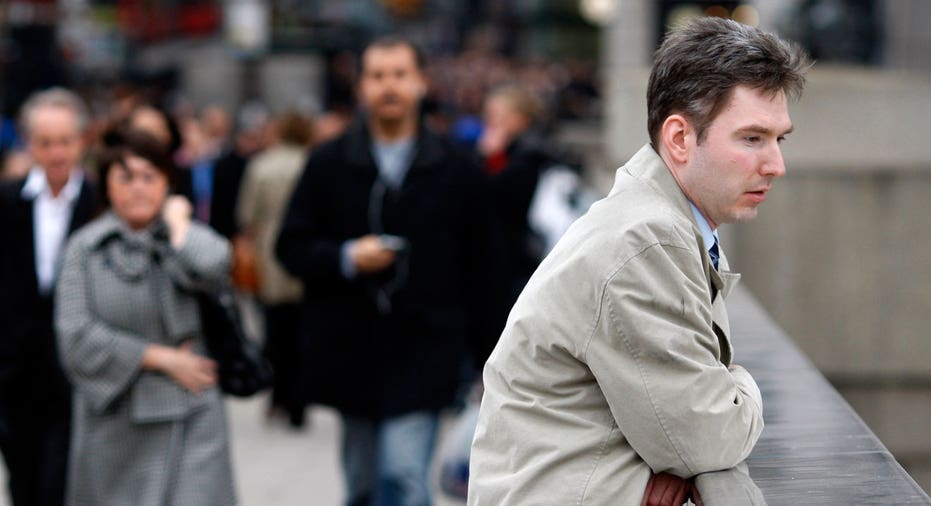Why Stress Builds Great Leaders

“’Cause when life looks like easy street, there is danger at your door.” – from Uncle John’s Band by the Grateful Dead
I grew up in a rough neighborhood in Brooklyn. We were packed into thousands of tiny apartments like rats in a cage. No wonder we always hung out on the street – shopping centers, basketball courts, play grounds – wherever there was space.
The racial violence was out of control. And the competition was brutal. What were we competing for? Girls. Friends. Laughs. Attention. Popularity. To get picked for sports teams. To stand out from the crowd. You name it, we competed for it.
It was like a crazy emotional rollercoaster full of euphoric highs and depressing lows.
Funny thing is, if you somehow learned to survive or even thrive in that environment, you probably had no trouble making it in the real world. Once I graduated from the streets, everything seemed so much easier, like swinging a baseball bat after warming up with weights on it.
Don’t get me wrong; I’ve had some issues. Some edgy tendencies that needed rounding out. Maybe a touch of PTSD. I tend to see life as a zero-sum game so I’m always on, always looking out for threats and advantages. And you may have noticed that I’m a little more sardonic and irreverent than the average person.
Still, when all is said and done, I have a hard time coming up with anything that made a bigger difference in my career than the stress and adversity I faced growing up.
It’s where my zest for learning and experience comes from. My fascination with people and what motivates them to behave the way they do. A relentless drive to accomplish great things and pursue a fulfilling life. The childlike belief that dreams can come true and that, somewhere in me, is the power to make them happen.
A strangely high percentage of Nobel laureates hail from New York City. My high school alone accounted for three, not to mention dozens of famous business leaders, scientists, athletes, musicians, writers, and actors. Quite a few successful executives grew up in Brooklyn, as well, including Starbucks’ (NASDAQ:SBUX) founder Howard Schultz and Goldman Sachs (NYSE:GS) CEO Lloyd Blankfein, whose father worked for the U.S. Postal Service, just as mine did.
I attribute all that to a number of critical factors that I think we, as a culture, are in danger of losing. They’re slowly but surely being bred out of our DNA by a broad-based and fast-growing entitlement culture. Even more concerning, we’re teaching our children that accountability doesn’t matter as it once did.
You see, our parents didn’t have a lot, but they worked hard to put food on the table and a roof over our heads without ever taking a handout. They pushed us hard in school because they wanted us to have a better life than they did. They instilled in us a powerful work ethic.
And even though we grew up in a dangerous neighborhood that resembled a war zone at times, we were allowed – no, we were encouraged – to venture out on our own and play. We were allowed to be children. That gave us self-confidence and taught us self-reliance. We knew that, for good things to happen, we had to go out and make them happen ourselves.
There was stress. Friction. Competition. Adversity. These days, everyone talks about stress being bad. Competition is bad. Everyone has to be a winner. That’s all a myth. Stress is good. Without it, nobody has to fight to win. Like it or not, the real world is a competitive place. And you do have to fight to win. That’s the only way to win.
Stress gave rise to the United States, freedom, liberty, and capitalism. Competition – survival of the fittest – is how evolution occurs in nature. It’s how all species survive and improve. It’s how all living things better themselves.
And, I know this is counterintuitive, but somehow, growing up in a world that was so real it was brutal at times taught us all a sense of humor and humility. If you had thin skin and couldn’t dish out and take a little abuse, you were done for. If your ego got to be too big, sooner or later, reality would cut it down to size.
I guess that’s how we learned that whining gets you nowhere. That everyone is the same. That we’re all in this together. That we all laugh and cry. And that we’re all flesh and blood humans in this giant Petrie dish called life on Earth. That sense of sameness grounded us in a community and, in some strange way, made us feel safe.
I believe it’s that unique combination of grounding in community, sense of humor and humility, powerful self-reliance, strong work ethic, and relentless drive to prove ourselves, to compete and win, that creates strong individuals and great leaders. It’s a surprisingly fragile combination that made America great. And it will unravel faster than you can imagine.



















